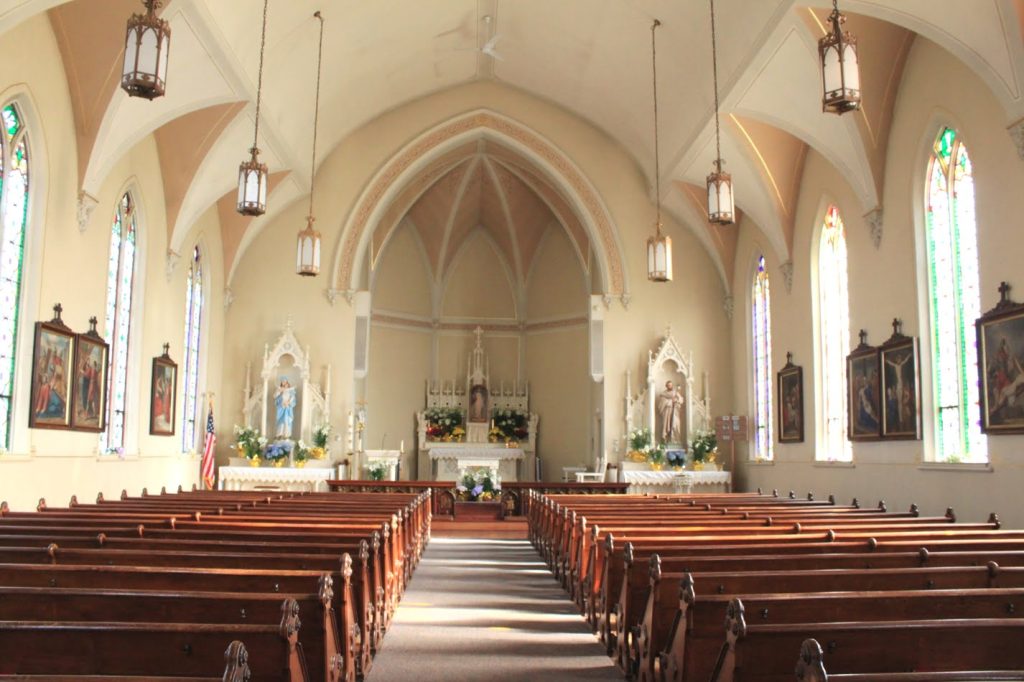
A Catholic’s Concern: Why the Church in Nigeria must rethink holy communion practices,
By Emmanuel Okoroafor
As a practising Catholic, I was raised to revere the Mass as the highest form of worship — a sacred moment in which heaven touches earth and the faithful encounter the divine. Over the years, my devotion has remained unshaken. Yet, I find myself grappling with a quiet but persistent discomfort about a specific ritual within the Nigerian Catholic Church: the continued insistence on placing Holy Communion directly on the tongues of parishioners.
This practice, deeply rooted in tradition and liturgical reverence, might have once made sense in a time when medical science was limited and infectious diseases were poorly understood. But in today’s world, where we are all too aware of how pathogens spread, this method of administering Communion deserves critical re-examination. The Catholic Church is nothing if not steeped in tradition. From incense to Latin hymns, its rites reflect centuries of continuity. However, tradition is not — and has never been — an excuse for inaction in the face of evolving reality. Indeed, throughout history, the Church has made prudent adjustments: Vatican II opened the door to vernacular languages in the liturgy; communion rails gave way to more inclusive arrangements; and in times of war and plague, emergency pastoral dispensations have been granted to protect life.
So why does it remain acceptable that in many Nigerian parishes, priests continue to place the consecrated host on the bare tongues of communicants, one after another, with little regard for hygiene? While the gesture is meant to emphasize reverence and prevent abuse of the Eucharist, it now serves, unfortunately, as a potential conduit for communicable diseases — from common colds to far graver infections. We saw what happened during the COVID-19 pandemic. Globally, bishops and cardinals, including those in the Vatican, issued directives suspending communion on the tongue altogether. Receiving in the hand became not just permitted but encouraged. Many churches even switched to individually packaged hosts, contactless collection plates, and hand sanitizers at the altar rail. These changes were not acts of disobedience but of pastoral care.
The Church teaches that the body is the temple of the Holy Spirit. If this is true — and I believe it is — then protecting that temple is also a spiritual obligation. When priests continue to place communion on people’s tongues in a line, without pause, gloves, or sanitization, we risk turning the sacrament into a health hazard.
This is not just a medical issue; it is a moral one. Public health should not be seen as external to spirituality. After all, Christ’s healing ministry was as much about physical restoration as it was about salvation. The early Church cared for the sick, the lepers, and the outcast — often ahead of their time. In that same spirit, today’s Church in Nigeria must show it cares enough to evolve.
We are not asking for liturgical shortcuts. We are asking for responsible stewardship. The same Jesus who instituted the Eucharist also touched lepers and healed the blind. Would He endorse a practice that endangers the vulnerable, when a safer alternative exists and is already in use across the global Catholic world?
In the United States, Canada, Germany, France, South Africa, and even parts of Asia, receiving Communion in the hand has become normative. The faithful are taught that the manner of reception does not reduce the sanctity of the sacrament. In fact, it fosters a deeper sense of personal responsibility and conscious reverence.
In Nigeria, however, many parishes still resist this development, either due to fear of desecration, clerical rigidity, or misplaced nostalgia. Some even go as far as to subtly discourage or shame those who attempt to receive the Eucharist in their hands. This is deeply troubling.
The Church is universal, yes, but it is also local. And local expressions of the faith must respond to local conditions — including local health challenges. Nigeria is not immune to disease outbreaks. From Ebola to Lassa fever to cholera, we have experienced public health emergencies that should inform how we gather and how we worship.
The time has come for the Nigerian Catholic Church to demonstrate leadership — not only in preserving doctrine but in applying it wisely. Bishops and parish priests must begin to encourage communion in the hand, and where necessary, educate the faithful on the theological validity of the practice.
Seminars, catechism classes, pastoral letters — all can help to bridge the gap between tradition and modern understanding.
We must remember reverence is not measured by the angle of the head or the posture of the tongue, but by the disposition of the heart. The Eucharist remains the Body of Christ — holy and indivisible — whether received on the tongue or in the hand. What matters most is that it is received with faith, humility, and gratitude.
This is not written out of rebellion or defiance, but out of love for a Church that has given me so much. I speak not just for myself, but for many silent parishioners who share this concern but feel unable to raise their voice.
The Church in Nigeria has always been vibrant, growing, and resilient. But growth must come with wisdom. Let us not cling to rituals that may harm, simply because they are old. Let us be the Church that cares — for both body and soul.
It is time for Holy Communion in Nigeria to be offered, not just with reverence, but with responsibility.
The post A Catholic’s Concern: Why the Church in Nigeria must rethink holy communion practices appeared first on Vanguard News.
,
By Emmanuel Okoroafor As a practising Catholic, I was raised to revere the Mass as the highest form of worship — a sacred moment in which heaven touches earth and the faithful encounter the divine. Over the years, my devotion has remained unshaken. Yet, I find myself grappling with a quiet but persistent discomfort about a […]
The post A Catholic’s Concern: Why the Church in Nigeria must rethink holy communion practices appeared first on Vanguard News.
, , Emmanuel Okogba, {authorlink},, , Vanguard News, July 6, 2025, 3:02 am











